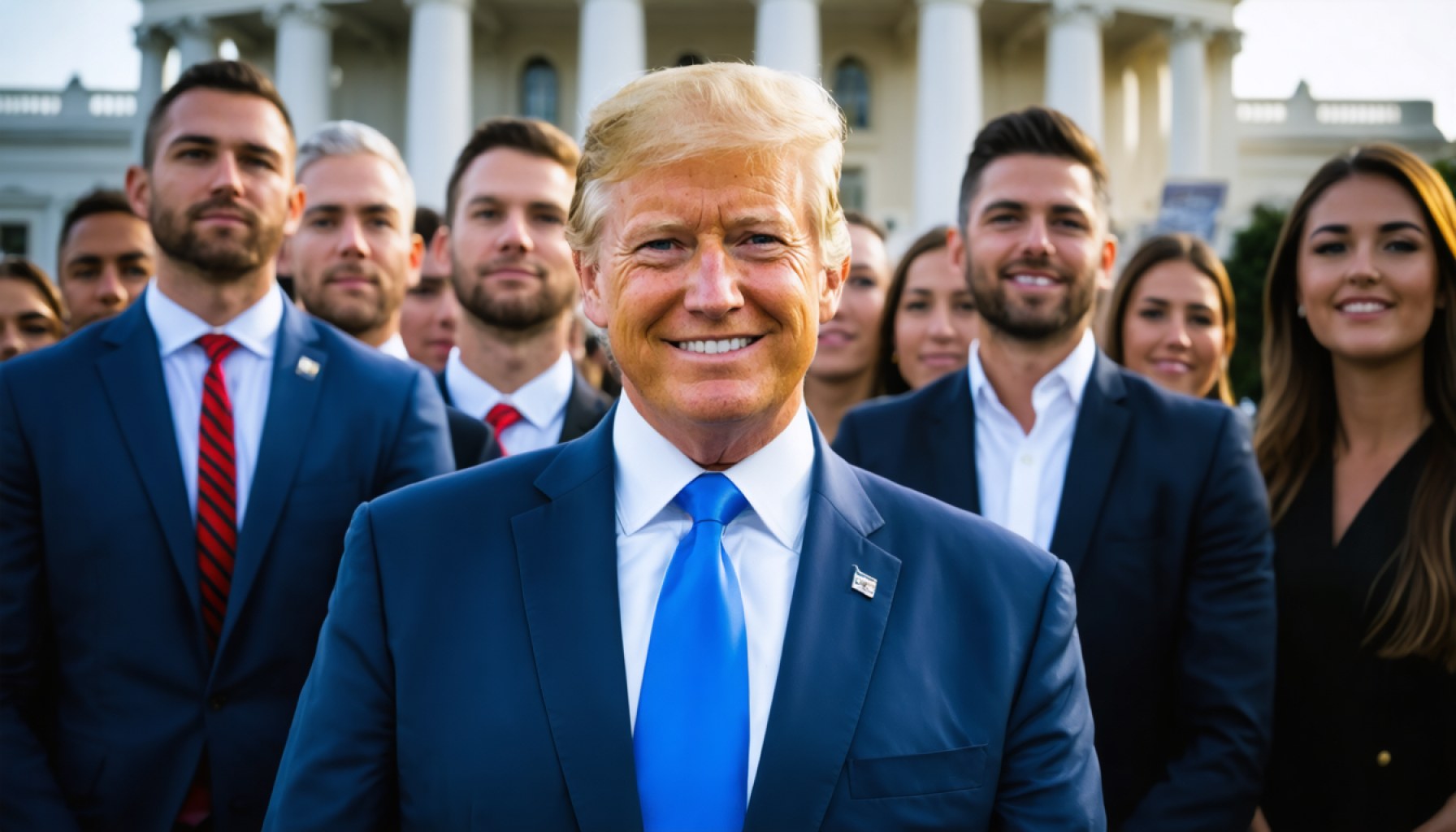- Republican candidates Jimmy Patronis and Randy Fine won special congressional elections in Florida, backed by significant support from cryptocurrency super PACs.
- Randy Fine won with 56.7% against Josh Weil, despite Weil’s $10 million campaign budget; Fine’s campaign utilized strategic backing with around $1 million in funds.
- Jimmy Patronis secured 57% of the vote against Gay Valimont, reinforcing Republican ideals in Florida’s 1st District.
- The victories were significantly supported by the Defend American Jobs PAC, part of the Fairshake network, which raised $116 million in January, with commitments reaching $133 million by 2024.
- These wins highlight the growing influence of cryptocurrency as a political force, potentially shaping future legislative support for crypto industry regulations.
- Prominent crypto figures and firms like Coinbase, Ripple, and the Winklevoss twins have contributed to backing candidates who champion digital innovation.
- The election outcomes suggest a future of increased synergy between technology and governance, with the crypto industry carving a distinct political role.
The political landscape shifted once more under the watchful eye of the cryptocurrency sector as Republican candidates, Jimmy Patronis and Randy Fine, carved out impressive victories in Florida’s special congressional elections. In a whirlwind of political strategy, backed by the deep coffers of crypto industry super PACs, these wins bolster the GOP’s presence and mark another milestone for digital asset advocates.
With the glow of victory illuminating the Florida sky, Randy Fine stood tall in the state’s 6th District. Garnering 56.7% of the votes, Fine clinched a seat from Democrat Josh Weil, despite facing a monumental financial challenge. Weil’s campaign, awash with an astonishing $10 million, was ultimately outmaneuvered by Fine’s efficient and strategically backed approach, leveraging only around $1 million. Jimmy Patronis followed suit in Florida’s 1st District, securing 57% of the vote against Democratic opponent Gay Valimont, reflecting a strong assertion of Republican ideals in the region.
Behind this political magic was the formidable support of Defend American Jobs, an influential Republican-focused crypto PAC, embedded within the larger Fairshake political network. The PAC’s roots run deep, having orchestrated a mighty $116 million fundraising effort in January alone, setting the stage for Republican advances in the 2026 midterms. As of the onset of the 2024 elections, Fairshake’s total commitment surged to an exemplary $133 million, fueling victories that resonate across the political spectrum.
These victories are not mere numbers. They echo a resounding message: cryptocurrency is proving to be a powerful political player. The successes of Patronis and Fine could tip the scales toward greater legislative support for the burgeoning crypto industry. With impactful legislation on stablecoins and market structure under Congressional scrutiny, these newly secured seats might just provide the pivotal support required to navigate the complexities of crypto regulation.
Prominent figures and firms within the digital asset space, such as Coinbase, Ripple, Andreessen Horowitz, and the renowned Gemini co-founders, Cameron and Tyler Winklevoss, see the fruits of their contributions manifest in these victories. They, alongside the Fairshake network, have diligently backed candidates championing the cause of innovation and robust American leadership in the blockchain era.
The takeaway from these election outcomes is crystal clear. As the bastion of digital asset innovation, the crypto industry is not only shaping market trends but also etching its mark on the political tapestry, one seat at a time. With each vote cast in favor of crypto-friendly candidates, there’s a whisper of a digital revolution, signaling a future where technology and governance coalesce to redefine progress.
How Florida’s Election Results Signal a Pivotal Shift for Cryptocurrency and American Politics
The political victories by Republican candidates Jimmy Patronis and Randy Fine in Florida’s special congressional elections spotlight the growing influence of the cryptocurrency industry in shaping American politics. These wins, backed by substantial contributions from cryptocurrency super PACs, particularly Defend American Jobs within the Fairshake political network, highlight a significant power shift that could influence future legislative decisions regarding digital assets.
How-To Steps & Life Hacks
1. Understanding Cryptocurrency’s Political Influence: Learn how crypto PACs strategically allocate funds to support candidates that advocate for digital asset-friendly policies.
2. Engaging in Crypto Politics: If you’re a cryptocurrency advocate, consider supporting PACs or candidates that align with digital asset innovation and regulatory reform.
3. Tracking Legislative Developments: Regularly follow congressional debates and proposed regulations related to cryptocurrencies to anticipate changes that may influence market dynamics.
Real-World Use Cases
The effective use of blockchain technology in politics could lead to more transparent electoral processes, secure voting systems, and efficient public fund management.
Market Forecasts & Industry Trends
The cryptocurrency sector’s involvement in political campaigns is expected to grow, particularly as more politicians recognize digital assets as a key player in economic and technological advancement. According to industry experts, this trend will likely lead to more crypto-positive legislation, further integrating digital currencies into the mainstream economy.
Controversies & Limitations
Despite their growing influence, cryptocurrency PACs face criticism for the potential lack of transparency and the risk of centralized control over decentralized systems. The ethical implications of such financial interventions in politics remain a hotly debated topic.
Features, Specs & Pricing
Cryptocurrency PACs like Defend American Jobs strategically target specific elections, utilizing data analytics to optimize fund distribution and maximize political gains with minimal financial outlay compared to their opponents.
Security & Sustainability
As crypto politics evolve, security around digital asset transactions and privacy concerns continue to be a priority. Ensuring sustainable practices in political funding and support networks will be crucial for long-term success.
Insights & Predictions
The integration of the crypto industry into the political realm is likely to intensify. As blockchain technology advances, expect to see more seamless blending of innovative digital solutions within governmental frameworks, possibly reshaping how political campaigns are funded and operated.
Tutorials & Compatibility
For those new to cryptocurrency politics, numerous online platforms offer tutorials on blockchain technology and its applications in governance, equipping you with the necessary knowledge to engage meaningfully in this arena.
Pros & Cons Overview
Pros:
– Increased advocacy for digital asset legislation
– Potential for more transparent political processes
– Strengthening of the American blockchain industry
Cons:
– Ethical concerns regarding financial influence on politics
– Risk of centralizing a decentralized innovation
Key Questions Readers Might Have
– How does cryptocurrency influence politics?
Cryptocurrency influences politics through financial donations to supportive candidates, advocating for favorable regulations, and encouraging technological innovation within government systems.
– What are the implications of cryptocurrency-backed candidates winning elections?
These victories could lead to legislative changes that support the growth of the crypto industry, potentially transforming economic and technological policies.
Actionable Recommendations
1. Stay Informed: Follow credible sources for the latest updates on crypto regulations and political landscapes.
2. Participate: Engage in political activities supporting crypto advocacy groups to influence policy changes favorably.
3. Educate Others: Share knowledge about the intersection of cryptocurrency and politics to broaden understanding and support.
In conclusion, the intertwining of cryptocurrency and politics signals an era of transformative potential, where technology and governance are poised to shape the future collaboratively. Keep an eye on this dynamic fusion to stay ahead of the curve in both the tech and political realms.
For more insights into political and technological interactions, explore CoinDesk.













